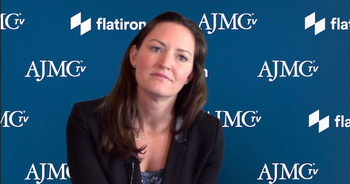
Carolyn Starrett, senior vice president, Provider Solutions, Flatiron Health, explains how Flatiron's OncoEMR is helping community practices recognize and implement best practices and optimize clinical decision making.

Carolyn Starrett, senior vice president, Provider Solutions, Flatiron Health, explains how Flatiron's OncoEMR is helping community practices recognize and implement best practices and optimize clinical decision making.
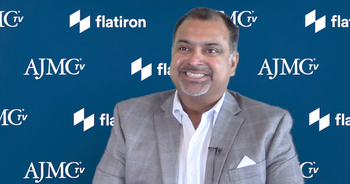
Consolidation is going to be a trend that community oncologists should look out for, explained Tesh Khullar, senior vice president & advisor, Flatiron Health.
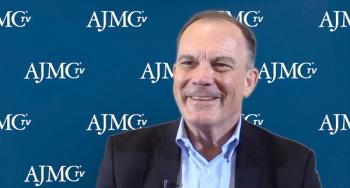
High-deductible health plans have been popular, but it’s becoming clear they are not right for all employees, said Michael Thompson, president and chief executive officer of the National Alliance of Healthcare Purchaser Coalitions.
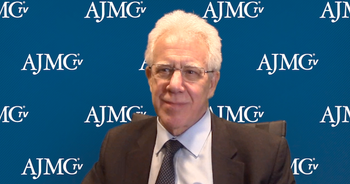
Lawrence N. Shulman, MD, director of the Center for Global Cancer Medicine at the Abramson Cancer Center, and professor of Medicine at the Hospital of the University of Pennsylvania, explains how providers are reacting to more effective, more costly therapies entering the cancer landscape.
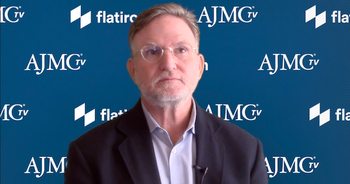
Bradley Prechtl, MBA, chief executive officer of Florida Cancer Specialists and the American Oncology Network, offers lessons learned from practicing value-based care.
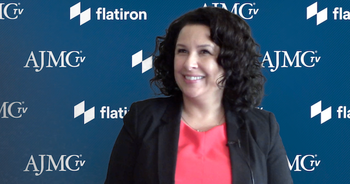
Nina Chavez, MBA, FACMPE, chief operating officer, New Mexico Oncology Hematology Consultants, Ltd., explains how expensive therapies like chimeric antigen receptor (CAR) T-cell therapy are creating reimbursement challenges.
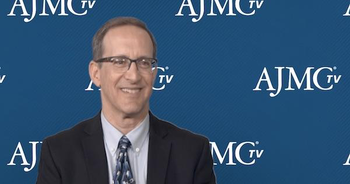
Steven R. Feldman, MD, PhD, professor of dermatology, Wake Forest School of Medicine, discusses the challenges clinicians face when managing psoriasis in patients who also have metabolic syndrome.
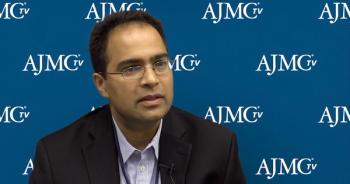
Myelofibrosis has a very heterogeneous disease presentation, which means patients with it can present to the clinic with a number of different symptoms, explained Naveen Pemmaraju, MD, associate professor in the Department of Leukemia at MD Anderson Cancer Center.
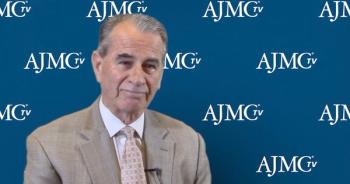
Low-wage earners in a company face a larger burden in access to care compared with high-wage earners, but not all employers recognize this and design benefits with this in mind, said Thomas Parry, PhD, president and founder of the Integrated Benefits Institute.
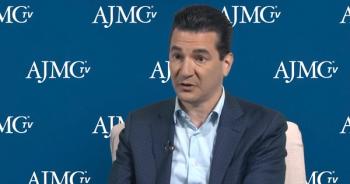
The marketplace is working to analyze and clean up real-world evidence so it can be used to inform decisions on treatment and coverage, said Scott Gottlieb, MD, former FDA commissioner (2017-2019).
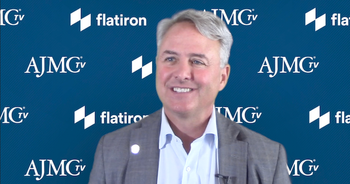
Jeff Patton, MD, chief executive officer of Tennessee Oncology, weighs in on Oncology Care Model (OCM) performance period 4 results and taking on 2-sided risk.
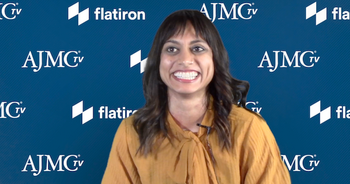
Amila Patel, PharmD, BCOP, technical lead, Clinical Oncology, Flatiron Health, offers details on new clinical workflow features that will address some of the pain points clinicians have with the electronic medical record system.
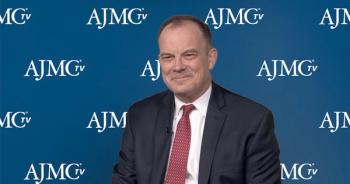
In the past few years, benefit designs have led to a reduction of both low-value and high-value care, and moving forward, new designs have to be tied more directly to value-based reimbursement, said Michael Thompson, president and chief executive officer of the National Alliance of Healthcare Purchaser Coalitions.
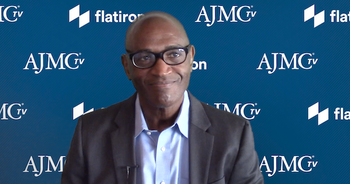
Terrill Jordan, chief executive officer of Regional Cancer Care Associates, discusses Oncology Care Model performance period 4 results and the biggest challenges community oncologists continue to face when trying to perform under the model.
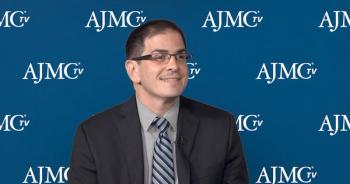
When measuring disease severity and progression in patients with multiple sclerosis (MS), there are several approaches that provide different information and have varying strengths and weaknesses, according to Daniel Kantor, MD, president of Kantor Neurology.

The Oncology Care Model (OCM) over the last couple of years has helped us to look at things that we didn’t really think of from an oncology perspective, explained Nina Chavez, MBA, FACMPE, chief operating officer, New Mexico Oncology Hematology Consultants, Ltd.

Tesh Khullar, senior vice president & advisor, Flatiron Health, discusses the first to anticancer biosimilars having recently entered the market.

Employers have been talking about low-value care for years, but they’re trying to identify to remove the use of those services, said Michael Thompson, president and chief executive officer of the National Alliance of Healthcare Purchaser Coalitions.

The development and access to orphan indications rely on reimbursement models that require regulatory action toward out-of-pocket costs for patients, said Scott Gottlieb, MD, former FDA commissioner (2017-2019).
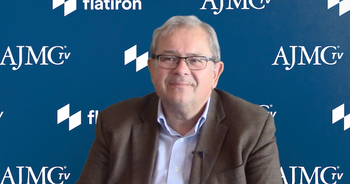
Michael Kolodziej, MD, vice president and chief innovation officer at ADVI Health, Inc., discusses the move to 2-sided risk in the Oncology Care Model (OCM).
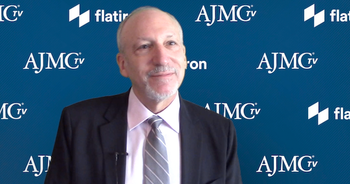
Lee Schwartzberg, MD, FACP, executive director, West Cancer Center, offers his view on the US Preventive Services Task Force's (USPSTF's) updated recommendation for risk assessment, genetic counseling, and genetic testing for BRCA-related cancer.

While there are concerns about the overdiagnosis of multiple sclerosis (MS), underdiagnosis is also a serious problem that can lead to patients not receiving treatment for MS, explained Daniel Kantor, MD, president of Kantor Neurology.
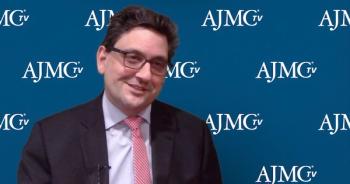
CMS is trying to make a 2-sided risk model in the Oncology Care Model enticing for practices, but there is still a lot of math practices need to work out before making the decision, said Blase Polite, MD, associate professor of medicine and the executive director for accountable care at the University of Chicago.
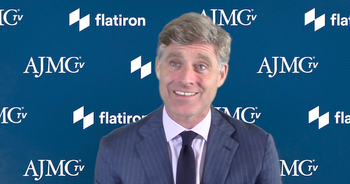
The more engaged patients who have more access to their data and are more informed about what’s going on are actually going to have better outcomes most of the time, explained James Hamrick, MD, senior medical director at Flatiron Health.
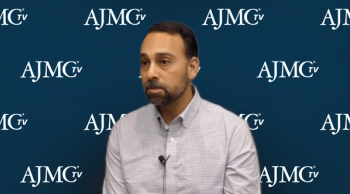
Migraines and cluster headaches can have devastating consequences on people’s lives, and there is a need to educate the public about the impact these disorders can have, said Abraham Nagy, MD, chair of neurology at University of Las Vegas and director of Nevada Headache Institute.

Novel therapies come with high costs, but they have the potential to more effectively treat some patients, and employers are struggling to handle the cost burden of them, said Michael Thompson, president and chief executive officer of the National Alliance of Healthcare Purchaser Coalitions.

Providing access to complex therapies through the Medicare market can benefit patients who are disproportionately ignored by socioeconomic status, said Scott Gottlieb, MD, former FDA commissioner (2017-2019).
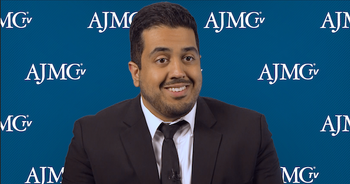
The only thing that should matter in these patients is their genetic code, but often it’s your zip code that really restrains your ability to access the healthcare you deserve, explained Ahmar Zaidi, MD, pediatric hematologist-oncologist, Comprehensive Sickle Cell Center, Children's Hospital of Michigan, when discussing the possibility of a gene therapy for sickle cell.

Since the introduction of disease-modifying therapies for multiple sclerosis (MS), evidence from disease registries has shown how the therapies work in the real world and reduce the effect of MS on people’s lives, according to Daniel Kantor, MD, president of Kantor Neurology.
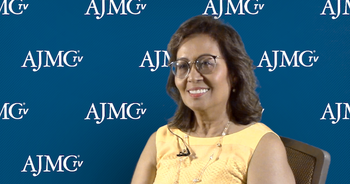
Lani M. Alison, BSN, MS, HCQ, PCMH, CCE, vice president of Clinical Affairs, Regional Cancer Care Associates, explains how the implementation of the Oncology Care Model (OCM) allowed practices to better integrate palliative care.

259 Prospect Plains Rd, Bldg H
Cranbury, NJ 08512
© 2025 MJH Life Sciences®
All rights reserved.
